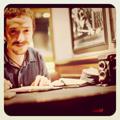A fine fairy tale
4 stars
Nettle & Bone is the story of a princess that wants to kill a prince for multiple reasons. Fearing for her sister, fearing for also becoming a wife for political reasons.
While it is a good book, it didn't hook me as much as other works and especially Thornhedge from T. Kingfisher.
I really enjoyed the concepts of the godmothers and dust-wives and also how tropes were used and presented. I feel it could have been more focused like The Fireborne Blade and The Bloodless Princes show.
Nettle & Bone is the story of a princess that wants to kill a prince for multiple reasons. Fearing for her sister, fearing for also becoming a wife for political reasons.
While it is a good book, it didn't hook me as much as other works and especially Thornhedge from T. Kingfisher.
I really enjoyed the concepts of the godmothers and dust-wives and also how tropes were used and presented. I feel it could have been more focused like The Fireborne Blade and The Bloodless Princes show.













